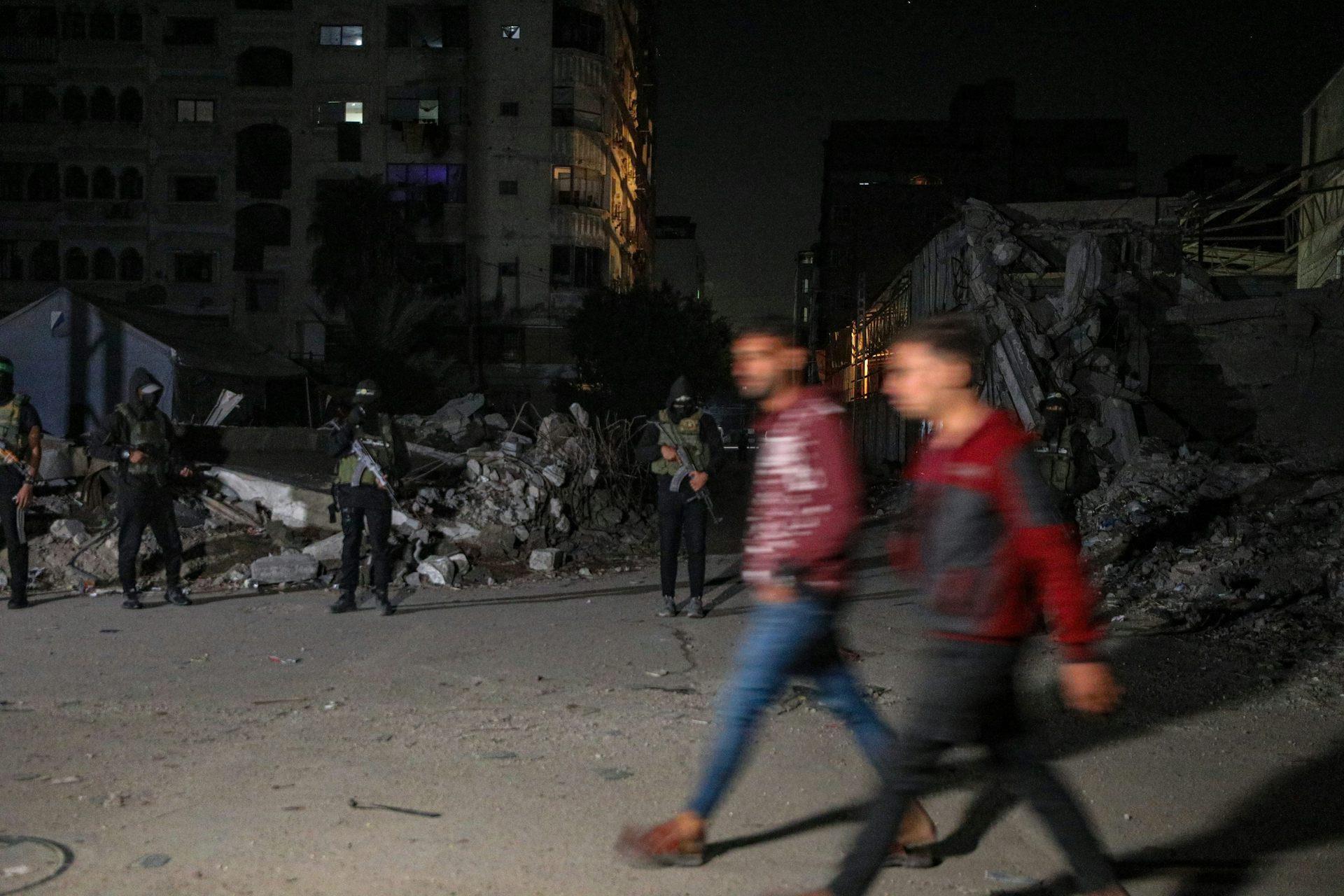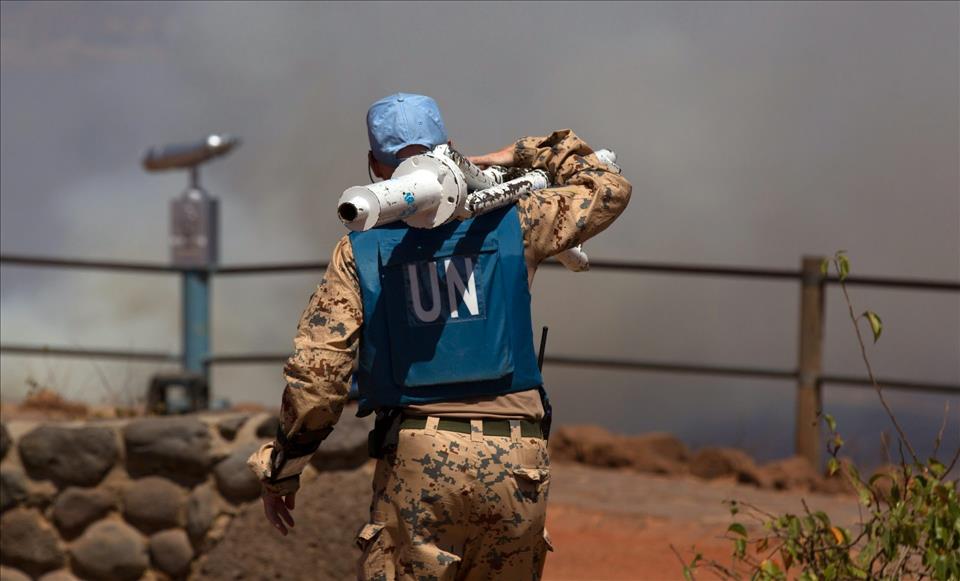
How An International Security Force In Post-War Gaza Could Work
The US is already planning to deploy 200 troops to the region to monitor and support the ceasefire. Several Arab and Muslim countries, including Egypt, Turkey and Indonesia, are also considering contributing troops to assist the implementation of the ceasefire agreement inside Gaza.
But at the same time, the prospects of a long-term ceasefire hang in the balance. Hamas has started to redeploy its forces around the enclave, and has attacked civilians it sees as opposing its rule. Israel's prime minister, Benjamin Netanyahu, has also threatened to return to war if Gaza is not completely demilitarised.
This is why an international stabilisation force (ISF) is a central plank in the plans for post-war Gaza that have been put forward by the US president, Donald Trump.
In November 2023, a few weeks after the war in Gaza began, we worked with Mary Elizabeth Walters from the US Air Force to produce a proposal for deploying a multinational peacekeeping force in Gaza.
We examined historical cases where the deployment of peacekeeping troops had been unsuccessful, such as in Lebanon from 1982. We also analysed cases that yielded more positive outcomes, including the missions sent to Bosnia and Herzegovina in late 1995 and East Timor and Kosovo in 1999. Many of our recommendations remain relevant.

Hamas militants standing guard in Gaza City on October 15. Mohammed Saber / EPA Equipped, mandated and ready
For the ceasefire to last, the ISF will need to tackle the thorny problem of disarming Hamas and other Palestinian armed groups. In the event that Hamas refuses to hand over its weapons, the ISF must be equipped, mandated and ready to compel militants to do so.
The UN's peacekeeping mission in southern Lebanon, Unifil, has never been equipped, mandated or ready to disarm Hezbollah. Lacking a mandate that would allow the use of force (other than in self-defence), Unifil troops have been unable to prevent Hezbollah from establishing fortifications – even right next to Unifil positions.
Had Unifil been more robust, perhaps the war along the Israeli-Lebanese border between Israel's military and Hezbollah in 2024 could have been prevented.
Read more: Israel-Hezbollah ceasefire deal promises a precarious peace in a region racked by conflict
The ISF in Gaza, if it does materialise, will require endorsement by the UN security council. While this is not guaranteed, none of the council's five permanent member states – China, France, Russia, the UK and US – have an obvious interest in blocking it.
Such endorsement could empower the peacekeepers to use force where they deem it necessary. Chapter VII of the UN Charter gives the security council the power to authorise peacekeepers to target particular combatant groups, demobilise warring parties and decommission their weapons.
There are historical examples of such forces achieving a degree of success. The Kosovo Force (Kfor) was deployed to Kosovo in 1999 in the wake of Nato's bombing campaign, which halted Serbia's ethnic cleansing of Albanian Kosovars.
Kfor was authorised by the UN security council under Chapter VII of the UN Charter, granting the mission the legal standing to adopt robust rules of engagement. Numbering 50,000 troops, Kfor's mandate was to ensure the withdrawal of Serbian forces, disarm and demilitarise the Kosovo Liberation Army militant group, and provide security and public safety.
It was also tasked with supporting humanitarian assistance and the return of refugees, and coordinating with the UN's Interim Administration Mission in Kosovo. Kfor's robust mandate and capabilities allowed it to prove largely successful in these tasks.
Kfor soldiers stand guard in Zvečan, a town in Kosovo, in 2023. Georgi Licovski / EPA
The legitimacy of the Gaza force among Palestinians will also be crucial. Without it, the ISF will constantly need to defend itself and would struggle to carry out any other tasks. Some Palestinian armed groups, including the Democratic Front for the Liberation of Palestine, have already rejected suggestions of an international security mission in Gaza.
But the ISF may be able to boost its standing among Gazans by playing a role in relief efforts and coordinating international aid. Ensuring that the supply of electricity and water returns quickly, and minimising any risk caused by sewage spillages, may help the force gain initial legitimacy.
In the longer term, the ISF must be prepared to train local forces so that its responsibilities could gradually be handed over to Palestinians. A peacekeeping mission in Gaza should be an interim phase – otherwise, it will be seen by many Gazans as just another foreign occupying force.
The ISF in Gaza is rightly conceived as just one part of a broader plan to improve Palestinian governance and promote peace between Israel and Palestine.
But for this broader plan to succeed – and for the current precarious moment to be traversed – a carefully planned and adequately staffed security force will be key. Without it, Gaza is likely to become embroiled in conflict once again.
As we pointed out in 2023, successfully deploying a robust and capable multinational force in Gaza could send a message to Palestinians, Israelis and the rest of the region that a new path has been taken. It would make clear that there will not be a return to the conditions prevailing before the war in Gaza began.

Legal Disclaimer:
MENAFN provides the
information “as is” without warranty of any kind. We do not accept
any responsibility or liability for the accuracy, content, images,
videos, licenses, completeness, legality, or reliability of the information
contained in this article. If you have any complaints or copyright
issues related to this article, kindly contact the provider above.
Most popular stories
Market Research

- Xmoney Launches $XMN On Sui, Expands Listings Across Global Exchanges
- Ozzy Tyres Grows Their Monsta Terrain Gripper Tyres Performing In Australian Summers
- Cregis And Kucoin Host Institutional Web3 Forum Discussing Industry Trends And Opportunities
- Superiorstar Prosperity Group Russell Hawthorne Highlights New Machine Learning Risk Framework
- Dexari Unveils $1M Cash Prize Trading Competition
- Xdata Group Named Among The Top 66 Saas Innovators In Techround's 2025 List




















Comments
No comment